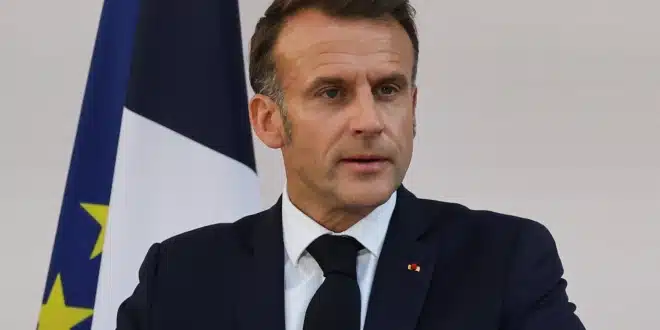French President Emmanuel Macron’s declaration that France would recognize a Palestinian state has stirred a complex mix of optimism and skepticism among Palestinians. While many welcomed the announcement as a potential shift toward international recognition of Palestinian sovereignty, others questioned its practical impact—particularly given the ongoing humanitarian crisis in Gaza.
A Gesture Met with Hope—and Reservations
In the West Bank city of Ramallah, where the Palestinian Authority (PA) is headquartered, the announcement was received with cautious optimism. “We hope it will be implemented, and we hope that most or all countries around the world will follow France’s lead in recognizing the Palestinian people’s right to an independent state,” said local resident Nabil Abdel Razek. The sentiment reflects longstanding aspirations tied to the 1993 Oslo Accords, which laid the groundwork for Palestinian self-governance with the aim of eventual statehood.
Friday morning, Macron’s pledge dominated newspaper headlines at a central Ramallah newsstand, reflecting the symbolic weight of the French leader’s words. For some, it felt like a step in the right direction. Ahmed Ghoneim, a political activist heading to a Gaza solidarity rally, expressed hope that France’s decision might inspire similar actions across Europe. He emphasized that such decisions could help transform the region’s instability into a more peaceful reality.
Currently, over 140 of the 193 member states of the United Nations recognize a Palestinian state, and France’s addition to that list could potentially influence hesitant countries to follow suit.
Gaza Crisis Overshadows Symbolism
Despite the hopeful rhetoric, many Palestinians remain deeply focused on the dire situation in Gaza. Commentators and activists stressed that Macron’s promise, while notable, doesn’t address the immediate and worsening conditions in the besieged territory.
Political analyst Nour Odeh took to social media to voice a prevailing concern: “The question for Palestinians is what will France do NOW about Israel starving them in Gaza?” Her words underline a widespread perception that symbolic gestures fall short in the face of ongoing suffering.
Others echoed that frustration. Ines Abdel Razek, co-director of the Palestine Institute for Public Diplomacy, criticized Macron for what she described as a missed opportunity to take real action. “What France should have recognized is the genocide and taken measures to end it and end the occupation,” she said in an interview, adding that France ought to consider cutting diplomatic ties with Israel and enforcing a trade embargo.
Abdel Razek pointed to more assertive actions by other leaders, citing Colombian President Gustavo Petro’s recent call for his military to block shipments of energy and weapons to Israel—a move she described as “an example of a brave gesture.”
A Symbolic Step, or the Start of Real Change?
While some see Macron’s declaration as largely symbolic, others believe it could still mark the beginning of a more active European stance on Palestinian rights. Political activist Samer Sinijlawi acknowledged the gesture’s limited practical effect but welcomed Macron’s additional call for Palestinian elections. “That brings us hope,” he said.
Amid decades of occupation, stalled peace processes, and recurrent violence, Palestinians continue to grapple with what international declarations truly mean for their daily lives. France’s move may signal a shift in diplomatic rhetoric, but for many on the ground, the priority remains tangible action—particularly as Gaza’s humanitarian crisis worsens.
In the end, the mixed reactions highlight the gap between words and deeds. As Palestinians continue to call for justice, statehood, and an end to occupation, symbolic support—while welcome—is no substitute for material change.


